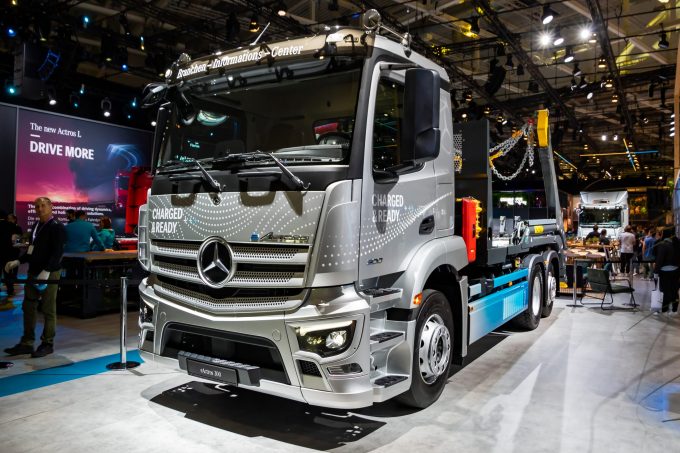Hydrogen-van plan scrapped – sustainable trucking takes another hit
Sustainable trucking is in disarray. High costs, insufficient investment and lack of a clear infrastructure ...

After a recent order for 100 Mercedes electric trucks from Germany’s DB Schenker, truck giant Daimler seems to have changed a view which previously appeared to favour hydrogen to power its vehicles.
The eActros LongHaul truck, set to go into production next year, will use lithium-iron ...

Comment on this article